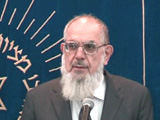- Shabbat and Holidays
- Sefirat Haomer
456
The Omer is different. The Torah says to start counting from the day after the Sabbath, which means the first day of Passover and for 7 weeks. The Torah emphasizes the Omer starts from Pesach and ends on Shavuot, but despite this, the first day of Passover and Shavuot are not part of the counting. The Torah gave the Omer three separate parts, a beginning,a middle and an end, the question is What does it mean?
Back to the story. Initial and middle portions of the story are the process, the steps from the opening to the end point. Sometimes the only goal is to reach the end and then we do not care what was in the beginning and what happened in the middle, as long as we get to the end. A good story is different. We understand the importance of the beginning to set the scene , and we want to get to the end, BUT the point is to enjoy the process in between. Only fools skip to the last page of the book!
This idea is also true for the Omer. There is a stage of leaving Egypt, a physical slavery to physical freedom . There is the final stage of the receiving of the Torah, building a spiritual level above the physical world, and there is the process. Some look at the days of the Omer as days of expectation for the Torah, we count the days and wait (impatiently) for Shavuot.
Although this explanation is true, the Omer has a deeper meaning. These days are not just days of expectation, but also days of work, of progress and process from the start point to end. In the process of leaving Egypt and becoming a nation we distinguish between the initial state which stands for itself, the goal at the end which stands for itself and the process. All of these are important and each one of these days has its meaning.
The Omer days are not only the days between Passover and Shavuot, but the days that allow us to go from Passover to Shavuot. We are not just waiting for the days to pass, but rather go through a process so we are able to receive the Torah.

The Road to Redemption Is Full of Dangers
Rabbi Shai Siminovsky | Nisan 5767

Mourning Customs During the Omer
Rabbi Eliezer Melamed | 5764

Independence Day, Jerusalem Day, and Sefirat HaOmer
Rabbi Shabbtai Sabbato | Iyar, 5761

What Are We Counting?
Rabbi Moshe Chaviv | 23 Iyar 5784

The Laws of Torah Study
Part 3
Rabbi Eliezer Melamed | 5761

The Laws of Torah Study
Part 3
Rabbi Eliezer Melamed | 5761

Building the Temple Today
Rabbi Avigdor Nebentzal | 5762

Menachem Mendel of Vitebsk: The Pioneering Rebbe
Rabbi Eliezer Melamed | Iyar, 5763

Daf Yomi Makkot Daf 21
R' Eli Stefansky | 1 Iyar 5785

The Yom HaZIKARON SIREN- EVERY ARROW NEEDS A HEAD!
Rabbi Ari Shvat | Iyar 5785

Ask the Rabbi: Scratching Improperly Parked Cars
Rabbi Daniel Mann | Iyar 5785









